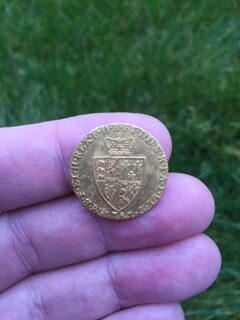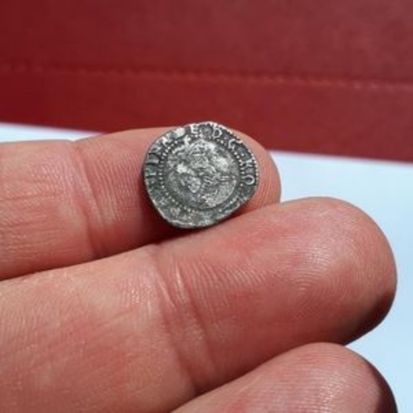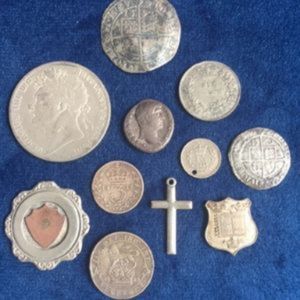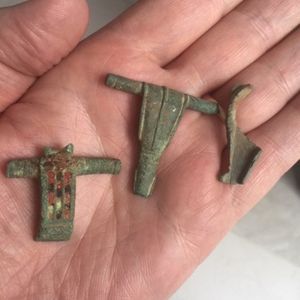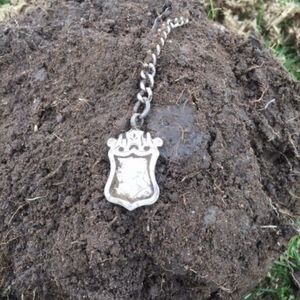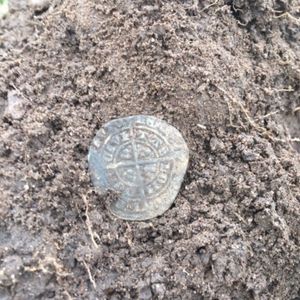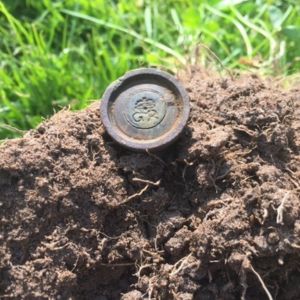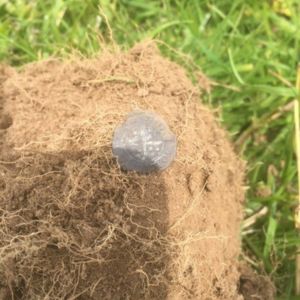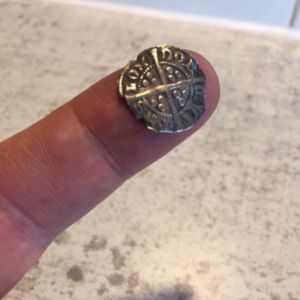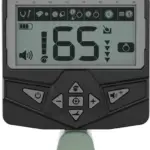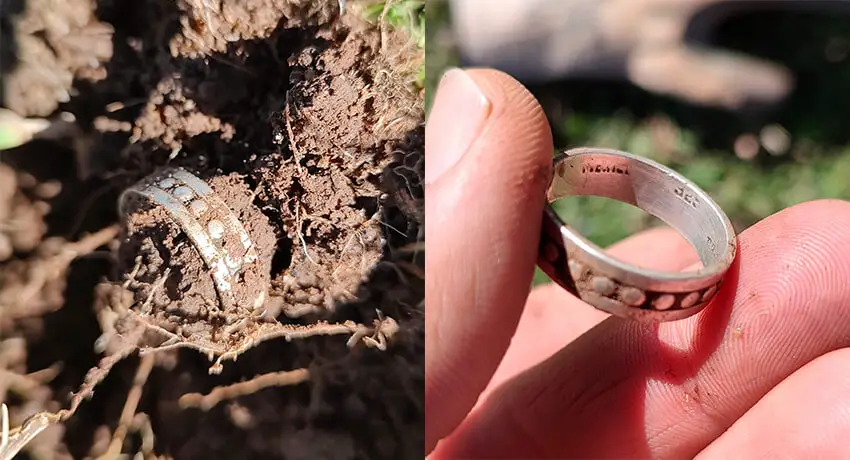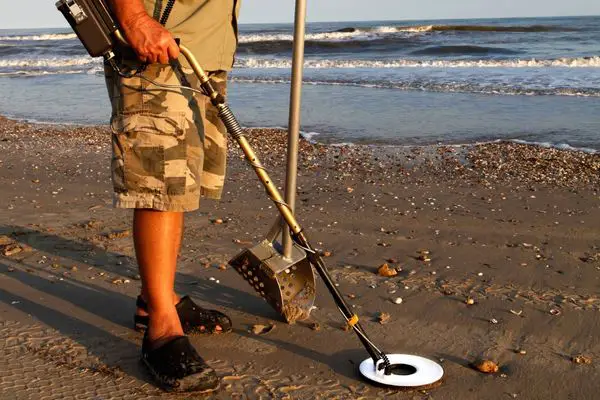Are you wanting to start the adventure of metal detecting but unsure whether to invest in an expensive or budget friendly detector? This age old dilemma has challenged many aspiring newbie metal detectorists so it’s a question worth exploring in more depth today.
Let’s look into the pros and cons of each option so you can make an informed decision that fits with your goals and financial position.
Read my more in depth article on Metal Detecting, where to start for beginners here.
The Allure of Affordable Metal Detectors
For those on a tight budget or simply dipping their toes into the hobby, a cheap metal detector can seem like a tempting choice. After all, who doesn’t love a bargain?
However, it’s essential to understand the trade-offs that come with opting for an inexpensive model. Inexpensive models to a certain extent fall into different brackets.
You will find very easily a lot of metal detectors in the sub £100 bracket. These are not generally recommended and should be viewed as a bit of fun with the chance of finding something.
However!….in an update to this article, Minelab have launched a new sub £100 beginners metal detector called the Minelab Intrepid….It’s a real gem and basically rewrites what to expect from a sub £100 detector. Read my new review article on the Minelab Intrepid here.
Read my article on the best metal detectors for beginners here!
You would then move into the sub £200 bracket where models have a little more purpose about them. Some gems can be found in this bracket.
As you move into the sub £300 bracket, models become mid range with more features. Metal detectors then progress in the hobby sector up to roughly the sub £2000 mark.
Read my article on the best metals detectors under £300 here!
Pros of Cheap Metal Detectors
| Pros | Description |
|---|---|
| Low Initial Investment | Cheaper models often cost less than £200, making them an attractive option for beginners or those with limited funds. |
| Opportunity to Learn | These detectors provide a hands-on introduction to the hobby, allowing you to hone your skills before upgrading. |
| Portability | Many budget models are lightweight and easy to transport, making them ideal for exploring various sites. |
Cons of Cheap Metal Detectors
| Cons | Description |
|---|---|
| Limited Features | Inexpensive detectors often lack advanced features, are designed to a small budget, will be single frequency, have limited adjustability, target identification and depth. |
| Lower Sensitivity | Budget models may struggle to detect smaller or deeper targets, potentially causing you to miss valuable finds. |
| Durability Concerns | Cheap detectors are sometimes constructed with lower-quality materials, raising concerns about their longevity. |
Despite their allure, it’s crucial to remember that cheap metal detectors may limit your potential for making significant discoveries.
While they can serve as a stepping stone, upgrading to a more advanced model may be necessary if you catch the metal detecting bug. Sticking to reputable manufacturers in this bracket is vital.
The Draw of High-End Metal Detectors
On the other end of the spectrum, high end metal detectors promise unparalleled performance and cutting edge features.
These top of the line models are designed to cater to the needs of serious hobbyists and professionals, offering unmatched accuracy and depth detection capabilities.
Similarly with many other hobbies, you generally get what you pay for. From certain mid range metal detectors, advanced multi frequency technology gets introduced.
Read my article explaining more about how multi frequency technology works here!
Pros of Expensive Metal Detectors
| Pros | Description |
|---|---|
| Superior Sensitivity | High-end detectors boast advanced technology that can detect even the smallest and deepest targets with remarkable precision. |
| Advanced Features | From target identification to wireless headphones, these detectors are loaded with features that enhance your hunting experience like multi frequency technology. |
| Durability | Premium models are typically constructed with high-quality materials, ensuring they can withstand the rigors of regular use. |
| Customization Options | Many expensive detectors offer customizable settings, allowing you to fine-tune the device for specific environments or targets. |
Cons of Expensive Metal Detectors
| Cons | Description |
|---|---|
| High Initial Cost | Top-tier detectors can cost anywhere from £500 to around £1,800 representing a significant investment for many hobbyists. |
| Steep Learning Curve | With their abundance of features, expensive detectors may require more time and effort to master effectively. |
| Weight Considerations | Some high-end models can be heavier and more cumbersome, potentially causing fatigue during extended hunts. |
While the upfront cost of an expensive metal detector may seem daunting, it’s essential to consider the long term benefits.
These advanced machines can significantly enhance your chances of making remarkable finds, potentially justifying the investment for those deeply passionate about the hobby.
With the increased performance of a mid to top range metal detector comes the increased chances of finding an object that might very well cover its cost of purchase.
Finding the Right Balance
Ultimately, the decision between a entry level or “competitively priced” detector and a more expensive metal detector comes down to your personal goals, budget and commitment to the hobby.
If you’re just starting and want to test the water without breaking the bank, a budget friendly model could be a wise choice if chosen correctly.
However, if you’re serious about metal detecting and eager to maximize your chances of success, investing in a higher end detector could be the way to go.
The advantage is that you wouldn’t have to upgrade later on and take a hit selling your old entry level machine.
Case Study: John’s Metal Detecting Journey
Let’s explore the experiences of John, an avid metal detectorist, to better understand the potential progression from a entry level detector to an expensive detector.
When John first discovered metal detecting, he opted for an inexpensive model to dip his toes into the hobby. While the budget detector allowed him to learn the basics and make a few interesting finds, he quickly realised its limitations.
Smaller targets and deeper treasures remained elusive, leaving him constantly thinking about more advanced technology. After a year of honing his skills, John decided to upgrade to a top of the line metal detector.
The investment was significant, but the results were astounding. With its superior sensitivity, target separation and depth detection capabilities, John began uncovering artifacts and coins that had previously eluded him.
The advanced features, such as target identification, wireless headphones, larger DD coil and multi frequency technology also enhanced his hunting experience making each outing more enjoyable and productive.
Read my further article on coil types and how they work here!
John’s journey illustrates the potential benefits of starting out with an entry level detector and eventually upgrading to a more advanced model as your skills and passion for the hobby grow.
Final Thoughts
Whether you choose to begin with a budget friendly or high end metal detector, the most important factor is your enthusiasm for the hobby.
Metal detecting is a fantastic hobby that combines adventure, history, and the thrill of discovery. Both routes into the hobby hold the same excitement when you start out.
As long as you choose carefully, your entry level choice could be the only detector you’ll need depending on your commitment and time.
You can find the sub £100 Minelab Intrepid from the Amazon Minelab UK shop here.
Embrace the journey, and remember that both entry level and expensive detectors can provide countless hours of enjoyment and potentially life changing finds.
So, gear up, grab your detector, and get ready to embark on an exhilarating treasure hunt – the ultimate reward awaits those with a keen eye and an unwavering spirit of exploration!
Please feel free to explore my website further and let’s Discover Metal Detecting!!

Unbeatable Multi Frequency!
You can now get the ultimate power of multi frequency technology over single frequency detectors with the Minelab Vanquish range of detectors.
The entry level Vanquish 340 now gives you ultimate depth, stability and sensitivity on all target types in every soil, including wet beach sand.



